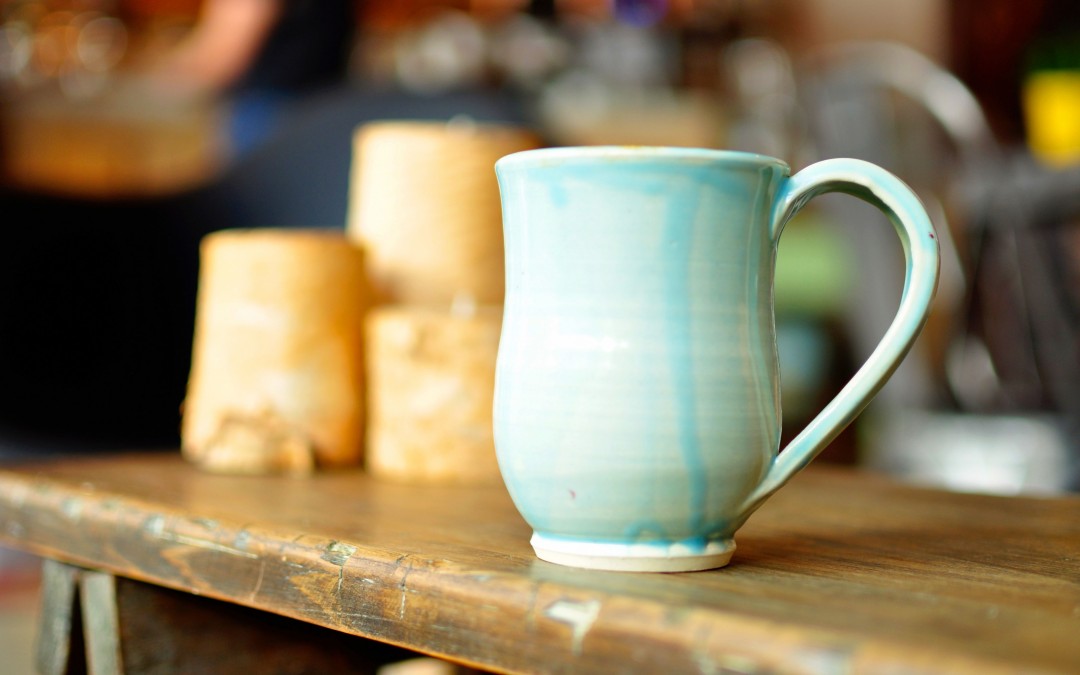Periodically throughout the year, Husband and I will walk around our house with a box or a trash bag, whatever is needed, and get rid of things. We do this because with six children, our house could easily become overwhelmed with toys, stickers, art supplies, rocks our sons decided to collect on the way home today, or, most recently, acorns that brought into our house the delightful acorn weevil larvae, hatched into our empty banana bowl. Good thing it was empty.
I’ve always been a person who feels stressed and suffocated in cluttered places. I like to have space. This is a personality thing, but psychology and neurology are both fields that have conducted studies about simplification. What research suggests is that when we simplify our homes and, hence, our lives, we find more energy, more pleasure and calmer attitudes. We also can create better without clutter. We can make decisions better without clutter. We can become better people without clutter.
There is this space on one of my kitchen counters, where my sons who go to school pile their school things. They have folders and papers and agendas and sometimes even random pencils, and, instead of putting these things in the designated places—because there are designated places—they pile them all into a precarious mountain that will most likely fall when one of them runs past it too quickly. Which is pretty much guaranteed in our home.
Every evening, when I’m done with my work, I have the pleasure of entering the kitchen, and the first thing I see is this pile. By this time, the pile has been knocked over several times, which means the papers are not so neatly stacked as they were, if they ever were, but are more like pinwheels, turned in ever direction. When I see this pile, my throat closes up a little. Clutter makes it hard to breathe.
But I’m not even just talking about the physical clutter of our lives. I’m talking about the schedule clutter of our lives, too. We live in such a fast-paced world, one where we find it necessary to do everything and be everywhere and keep going until we can’t go anymore. This is the road to success, right?
Wrong.
What simplification of our lives and homes does is it opens in us space enough to think more clearly and deeply, to spend more time discovering ourselves and the people around us, to sit outside on the back porch and linger over a dinner that all the kids complained about but ate anyway.
Our minds need space to consider important decisions in business and family and personal life. Our bodies need space to stretch out and move and not puncture our foot on an errant toy wherever we step (we’re still working on that one). Our lives need space to dream and create and grow.
[Tweet “Simplification of our lives gives us space to dream, create and grow.”]
Earlier this week, I was working on the layout of one of my books. I was struck by the small amount of white space—when you’re laying out text in a text-heavy book, you don’t want a whole lot of white space, because it represents wasted space, or, in other words, wasted paper. But as I stared at the little bit of white space in my book, I thought about the white space in our lives. We need that white space. We need it more than the text.
In the next few weeks, Husband and I will be doing another purge of our house, because our oldest has a birthday in a few days, and Christmas is coming up. Grandparents have a really hard time not buying toys for all of our boys. So old toys will be donated or thrown away if they have no more life left.
This is a sad thing (everybody will miss that Buzz Lightyear with a missing leg), but it is also a wonderful one. We get to teach our boys what it looks like to intentionally create white space in their lives. We get to demonstrate for them just how much simplifying our home and our lives can open wells of creativity, connection, passion, and wonder.
I hope you’ve enjoyed this inside look at my life and my perspective on clutter. Every Friday, I publish a short personal essay that includes a valuable takeaway. For more of my essays and memoir writings, visit Wing Chair Musings.


